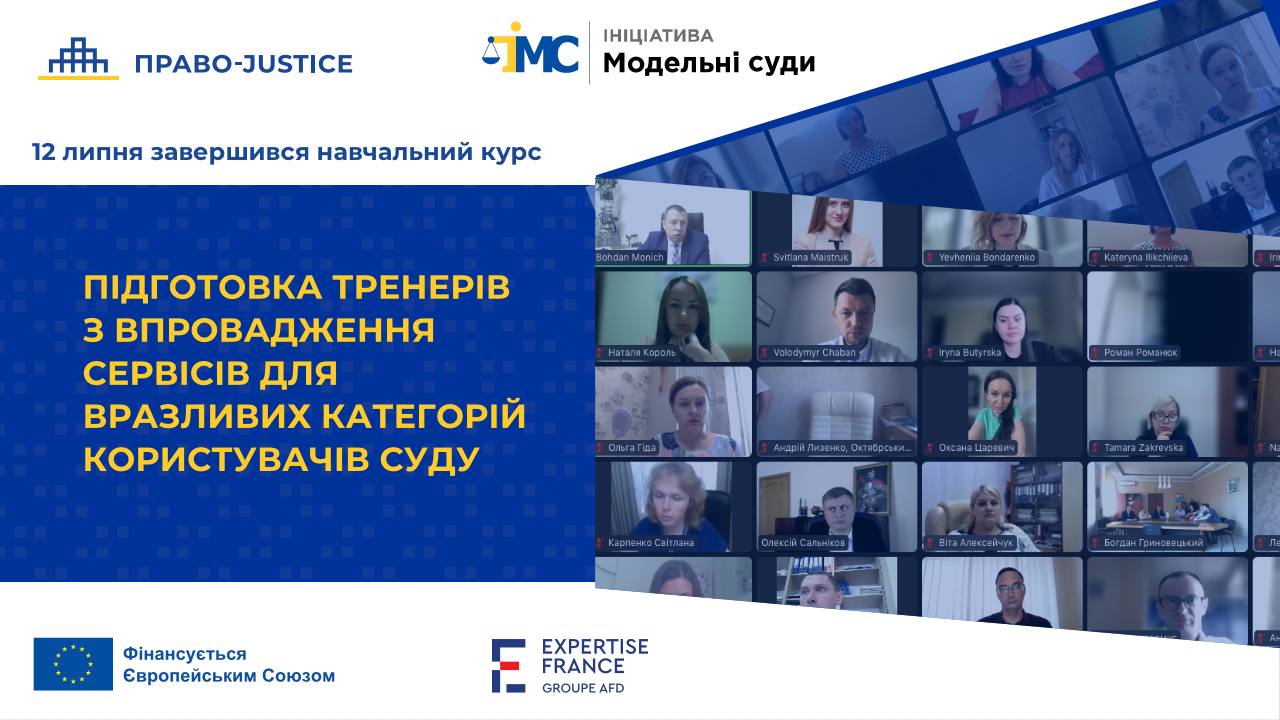EU Project “Pravo-Justice” completed training of trainers on implementing services for vulnerable court users

On 12 July, EU Project “Pravo-Justice” completed the theoretical part of the inter-institutional training course “Training of Trainers on Implementing Services for Vulnerable Court Users” for 39 participants.
This is the fourth intake of this training course conducted within the Model Courts Initiative.
The course was delivered for judges, court staff, the Court Security Service, the National School of Judges, the State Judicial Administration, the National Police, lawyers, representatives of the free legal aid system, and NGOs.
“We welcome 39 new members of the community of trainers who have completed the theoretical part of the course and are finalising their diploma theses in cooperation with the trainers. Soon they will receive certificates and will be able to implement their own projects to introduce services for groups of vulnerable users. It is important that all course attendees gained knowledge with a focus on the experience of victimisation in the context of military conflict, using a survivor-centred approach,” said Yevheniia Bondarenko, national expert of EU Project “Pravo-Justice” who is coordinating the course and work with vulnerable court users within the Model Courts Initiative.
According to the national expert, the training course has already become a platform for scaling up best practices in implementing services for vulnerable court users. More than 130 graduates of the four course intakes not only develop projects for their own organisations, but also share their knowledge as speakers at trainings of the National School of Judges of Ukraine and at events held by the State Judicial Administration of Ukraine, international projects, and NGOs.
“This helps to achieve a sustainable result for the judiciary, which is becoming more responsive to the needs of vulnerable groups, ensuring inclusion and access to justice,” said Yevheniia Bondarenko.
During the course, the trainers and participants covered the following topics:
- The concept of victimisation, the need to support victims and witnesses;
- International and regional standards for protecting and supporting victims and witnesses;
- Communicating with vulnerable persons;
- Understanding victims’ and witnesses’ needs;
- Supporting victims of conflict-related sexual violence;
- Preventing victimisation of IDPs and refugees;
- Conflict management and crisis intervention.
The course was delivered by Project experts – Iryna Urumova and Kateryna Ilikchiieva, as well as graduates of the three previous intakes who are actively implementing the experience gained in various fields and establishing inter-institutional cooperation.